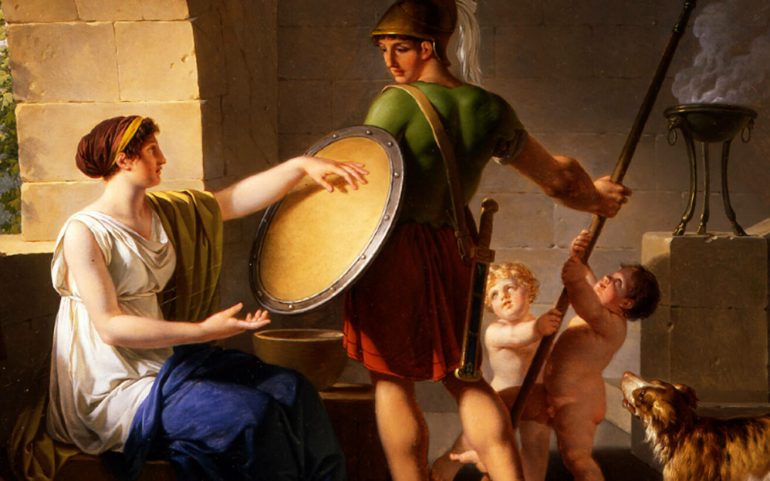Exercised, educated, emancipated and dynamic, despite the fact that she lived in a society that had favored the collective over the individual.
Everything was done here for the survival and the constant strengthening of the state. And it was a city-state so strong that it challenged anyone to come and conquer it!
Almighty and κων laconic, it is a society that has left us a legacy of concepts such as discipline, bravery and austerity.
However, she left us a relatively unknown aspect of her, the role of the Spartan in all this. A woman whose social status as well as her very existence had no equal in the tragic circumstances of the time.
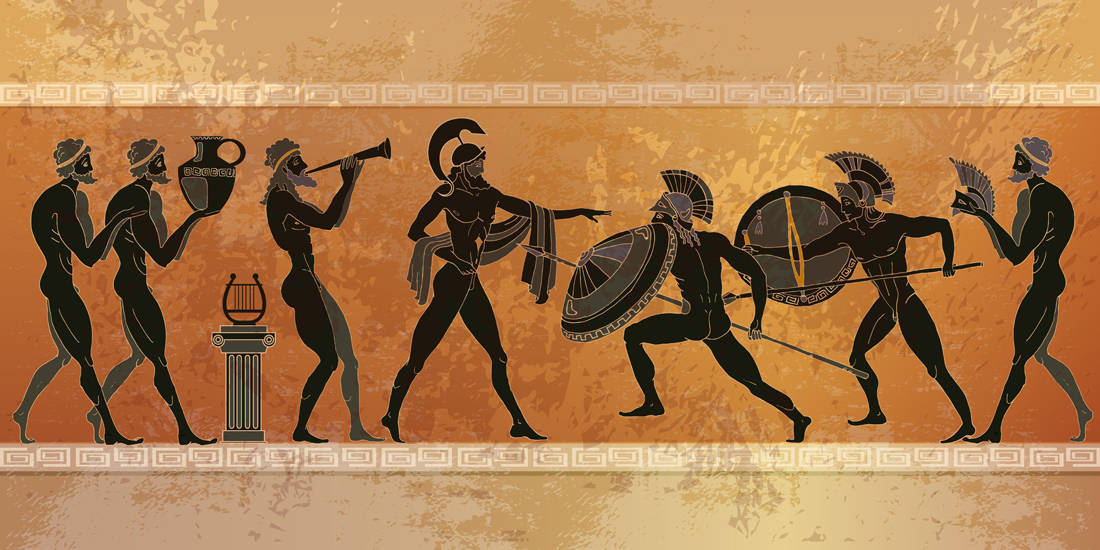
We used to honor Athens for everything, however, in terms of women's emancipation, Sparta was far ahead. Not only from the famous Athens, Greece, but from all the then known world!
The Spartan was equal to the Spartan in terms of education and spiritual cultivation. It was a society that honored its women as well as its most glorious warriors.
The Spartan who died heroically in battle had the same position as the Spartan who died in childbirth: their names were written on tombstones outside the city. So that everyone remembers and remembers them.
And this is where the headache for historians begins: How could such an extreme authoritarian system, oppressive in most aspects of individuality, be so progressive as to confer such degrees of freedom and education on women?
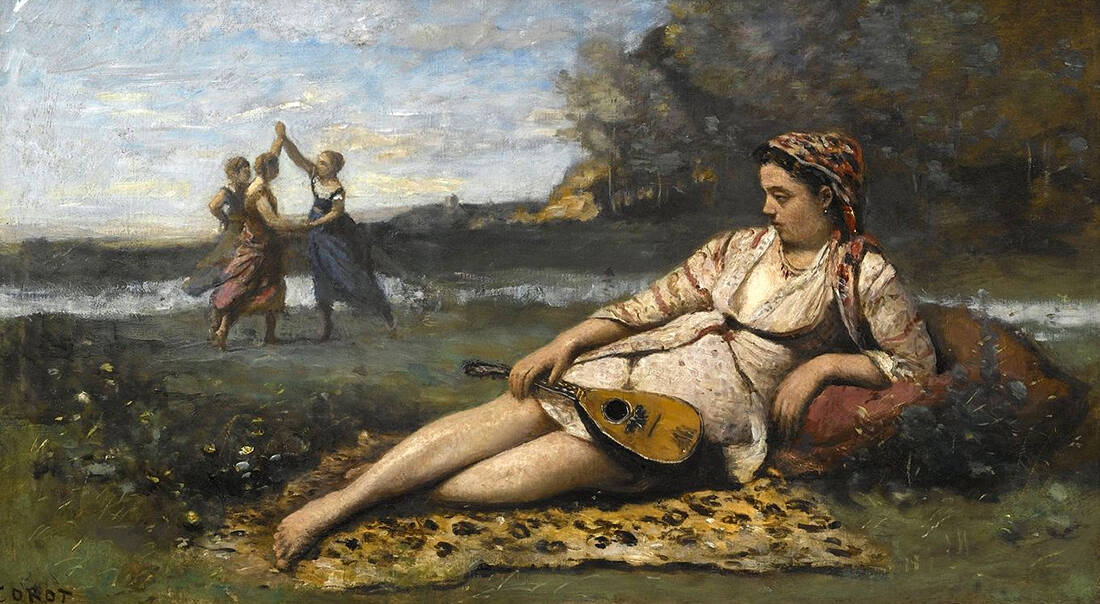
The little information we have about the Spartan dates from descriptions between the Archaic and Classical Periods. When all the other women of the Greek world live a life serving their male masters, the Spartan works as an absolute exception.
Even Athena had few rights, despite the increasingly progressive nature of the city-state. Perhaps it was to blame for the fact that Athena was her husband's property and that the Spartan was growing up and controlled exclusively by the state.
As long as Women of the time she lived at home and ran the household, she trained as a girl to get a sporty silhouette. In her privileges, or rather in her obligations, was education.
Historians attribute the unprecedented degrees of freedom he enjoyed to the fact that all work in Sparta was done by helots. That is, where in other cities one had to weave, the Spartan was free from such duties. Her only concern, like that of the Spartan, was to serve the state.
The man served it when he became a good soldier. The woman as long as she remained physically robust and gave birth to healthy offspring. Individualism was subordinated to the collective good, and it is here that many scholars see the basis for the unparalleled freedom and equality enjoyed by the Spartan.
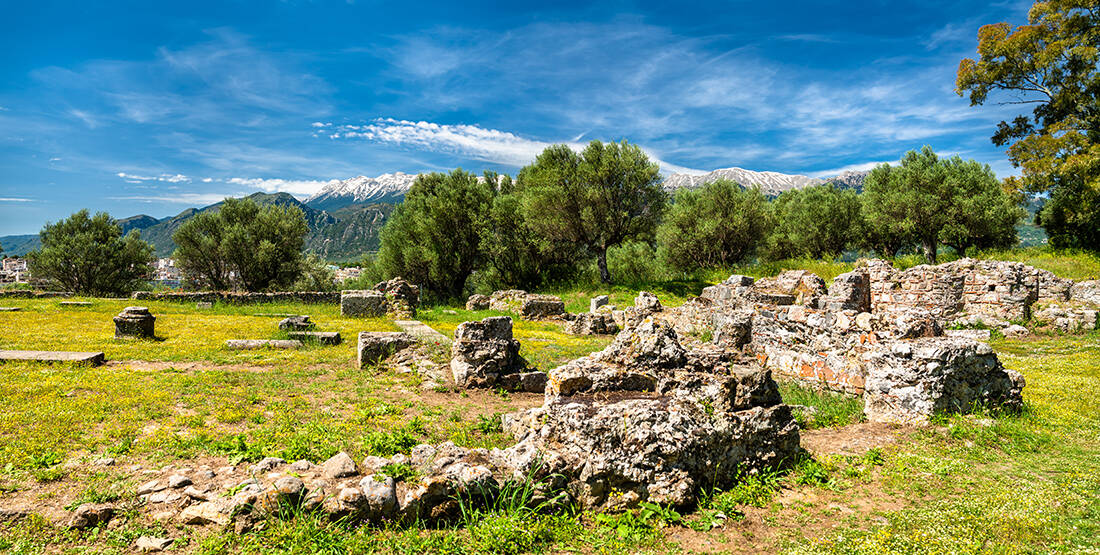
Its No. 1 role was to create the next generation of citizens. And that's why she had to be not only physically healthy, but also mentally.
The organization of society itself encouraged her to take part in spiritual pursuits and to be aware of the issues that also concerned the man: state policy, laws, reading, writing and mythology.
Sparta even wanted her to such a point of supremacy that she could compete with anyone who challenged her athletic ability, spirit or knowledge. Besides, she grew up next to the man, trained with him and ran in the same races.
It only did not take part in military training, as it was compulsory only for young boys. But as long as they were in the playgrounds and high schools, the girls received formal education. Iamblichus admits that "the Spartans were probably very educated".
And if today historians dispute whether it applied to all Spartans or exclusively to the girls of the ruling class, it is more than certain that the Lacedaemonian woman could read, write and participate equally in men's discussions.
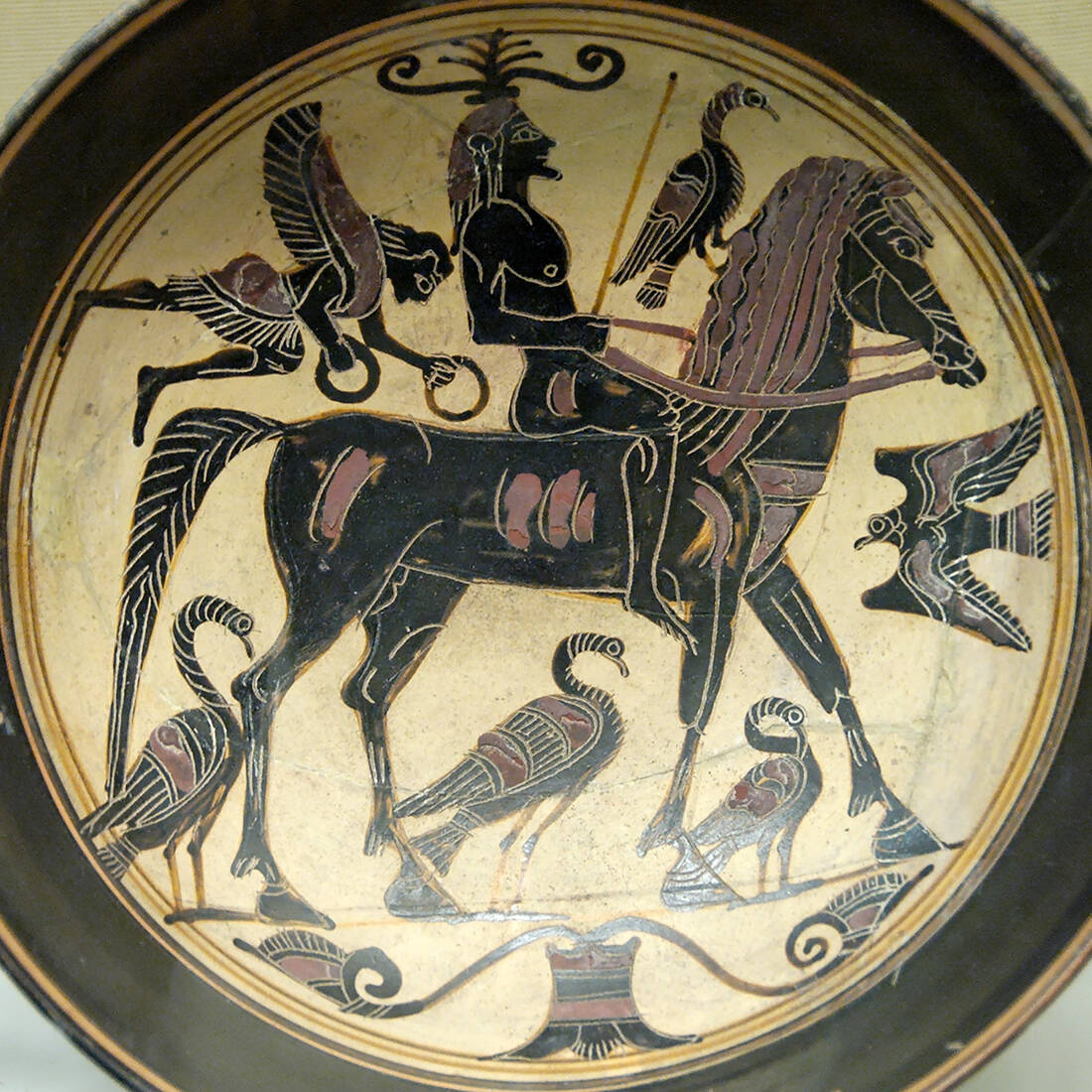
The Athenians, moreover, were terrified of their spirit and ingenuity, and the anecdotal facts left to us by the ancient writers leave no doubt.
One such has been delivered to us by Plutarch in "Quotes Laconic", for someone who mocked the women of Sparta, only to receive the paid answer of Gorgos, the wife of Leonidas: "We dominate our men because we are the only ones who give birth to men"!
But it was also the other, that in a society of educated women the degree of refinement of their spirit was becoming more and more.
The Spartan mother gave homework to the little one and then put her to compete with the boys in public discussions at parties and religious events.
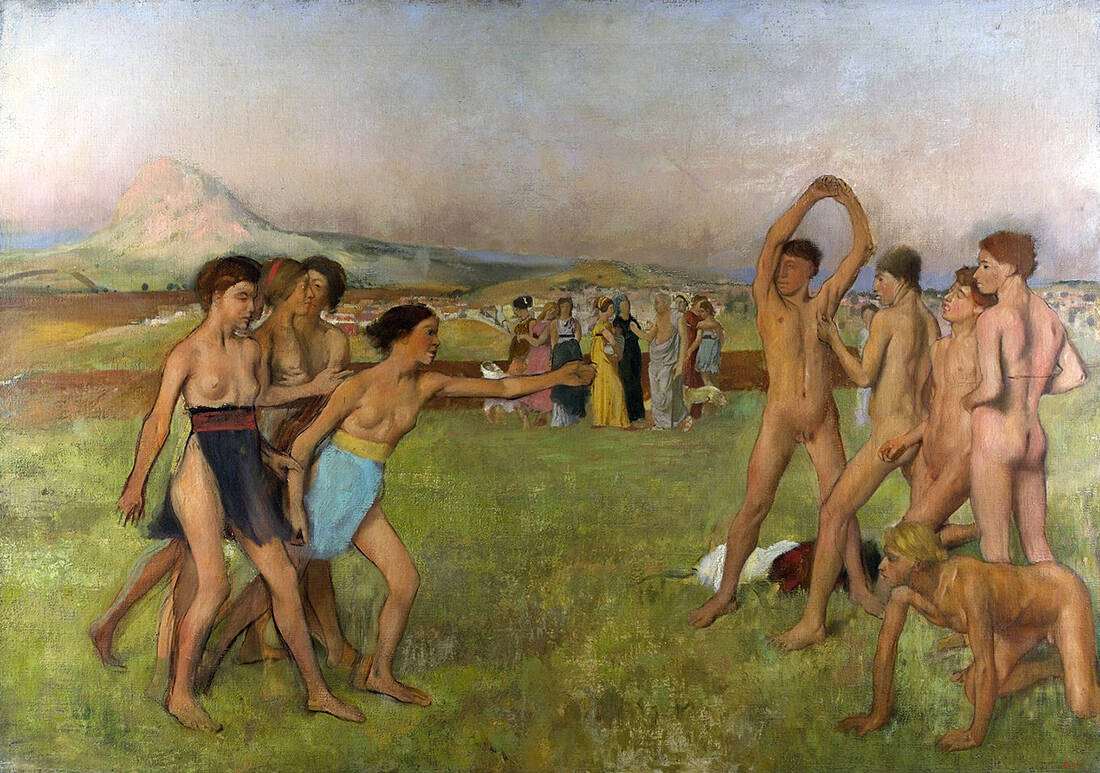
While the rest of the Greek women were obliged to wear corsets and tight belts, in order to emphasize their femininity, dressed in elaborate dresses that they wove themselves, the Spartans walked around almost naked.
That is, where for the rest of the Greek world it was taboo for a woman to show any part of her silhouette, the Spartan woman simply threw a short tunic over her. Leaving her legs completely uncovered.
The Athenians blamed them for this, because they showed their hips to men. But they exercised daily, ran, fought and threw the disc and the javelin. In such intense physical exercise it is not difficult to see why they did not wear plump women's clothes.
Plutarch observes in this regard (in the "Life of Lycurgus"): "The nakedness of the virgins had nothing to do with shame, because there was shame, but obscenity was lacking." The men also wore correspondingly few clothes and the fact did not impress anyone. Except for those outside.
Socialization and flirting were, after all, unknown words to the everyday life of the Spartans, only in times of religious events were such things allowed.
The men also remained in the barracks until they completed their thirty-year military service to the state. Even so, society expected that men and women would meet and have sex in secret, enjoying their lives as couples.
There was even a law that punished them if they did not…
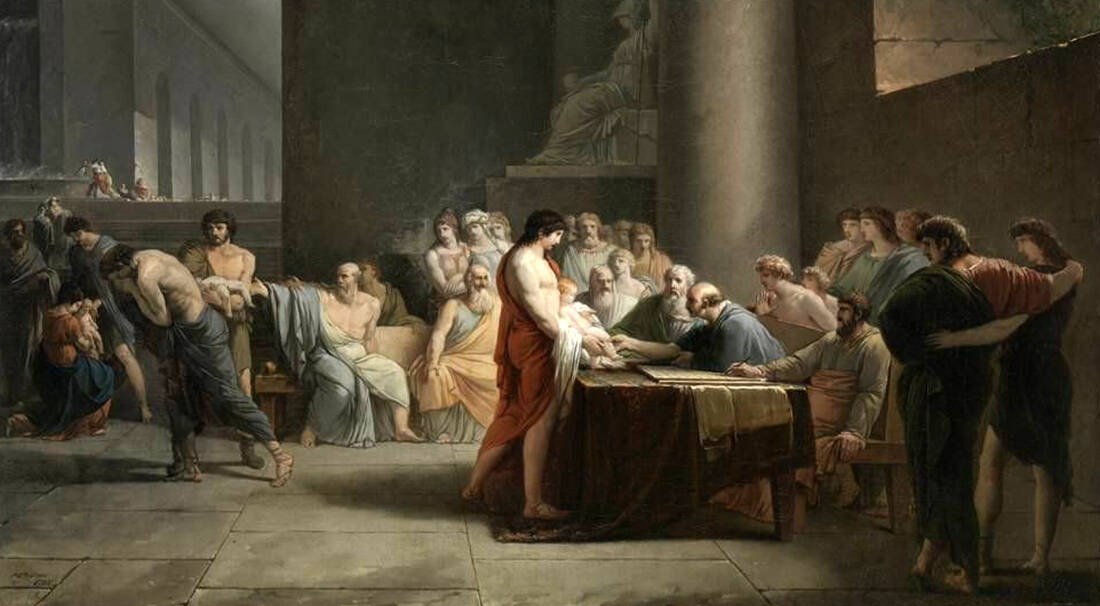
A good indication of the degree of parity and autonomy enjoyed by the Spartan is the fact that marriages in ancient Sparta are basically consensual! The union of man and woman is exclusively their personal affair. Neither family interests, nor parents and neighborhoods.
Of course, there were still some conditions, but the degree of freedom in choosing a partner was second to none in the whole archaic world.
The Spartan married at 18 usually a Spartan close to 30. And this is explained, only after the age of 30 the man had the right to the state provision of the lot, in order to make his home with the woman of his choice.
If the age difference sounds big, in Athens girls at the age of 14 got married to neighborhoods with much older men.
30 was something like a ceiling for the man of Sparta, he was in danger of being punished if he remained single, useless in terms of reproduction and perpetuation of his city. The 30-year term of the man usually meant that the marriage was short and the couple would stay apart, as he had to return to the camp.
But she secretly entered the bride's paternal home at night and her parents pretended not to see. But if he was caught missing from his barracks, he was punished, for example!
Both Plutarch and Xenophon (in "Lacedaemonian State") tell us that this model of life kept their lust and love fresh and set fire to the sheets.
Only on holidays did the couple sleep together, sometimes during the year. Plutarch tells us that despite state motives for marriage and childbearing, the Spartan appeared reluctant to marry. Because, only assumptions can be made. Dowries however, wedding spree was unheard of for the Lacedaemonian society.
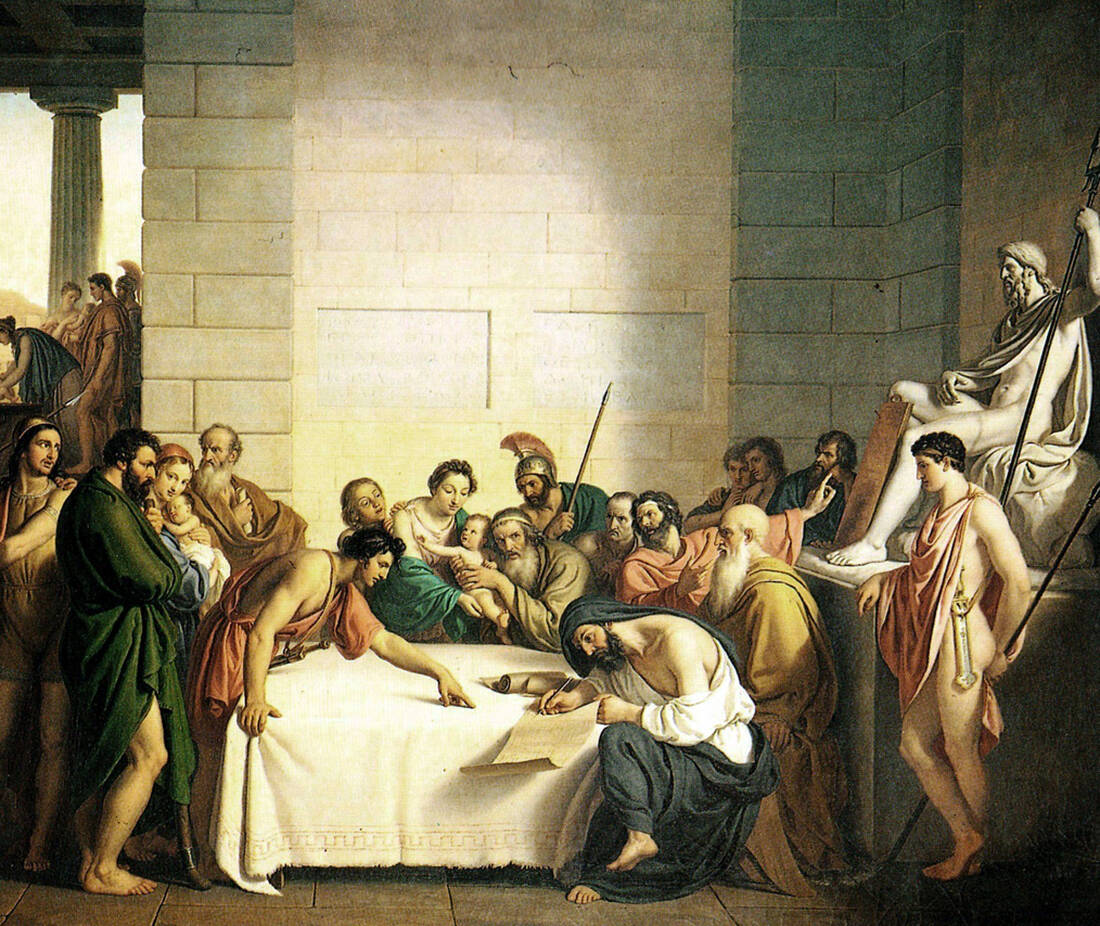
The law of Lycurgus, which bestowed all these privileges on the Spartans, took special care of the most important aspect of one's emancipation: the right to estate.
The Spartan could own land, all the financial resources to support her family and even function as her head. Although this aspect does not gather historical consensus, the source of doubt is not the woman's right to own land, but how much control and ownership the Spartan citizen generally had over his land.
Studying the "Parallel Lives" of Plutarch, the verse about Lycurgus, the historian claims that the earth was historically passed from man to man descendant. But when the man was absent, either in the war or dead or there was no descendant to succeed him, the property passed to the woman. And he stayed in it until he remarried or had a boy.
In fact, Aristotle clearly attributes the failures of Sparta to the innumerable rights, the wealth and the influence that the Spartan had on the state, the land and the administration! It is very possible that the Spartan woman could bequeath her land wherever she wanted, something really unheard of for an ancient society.
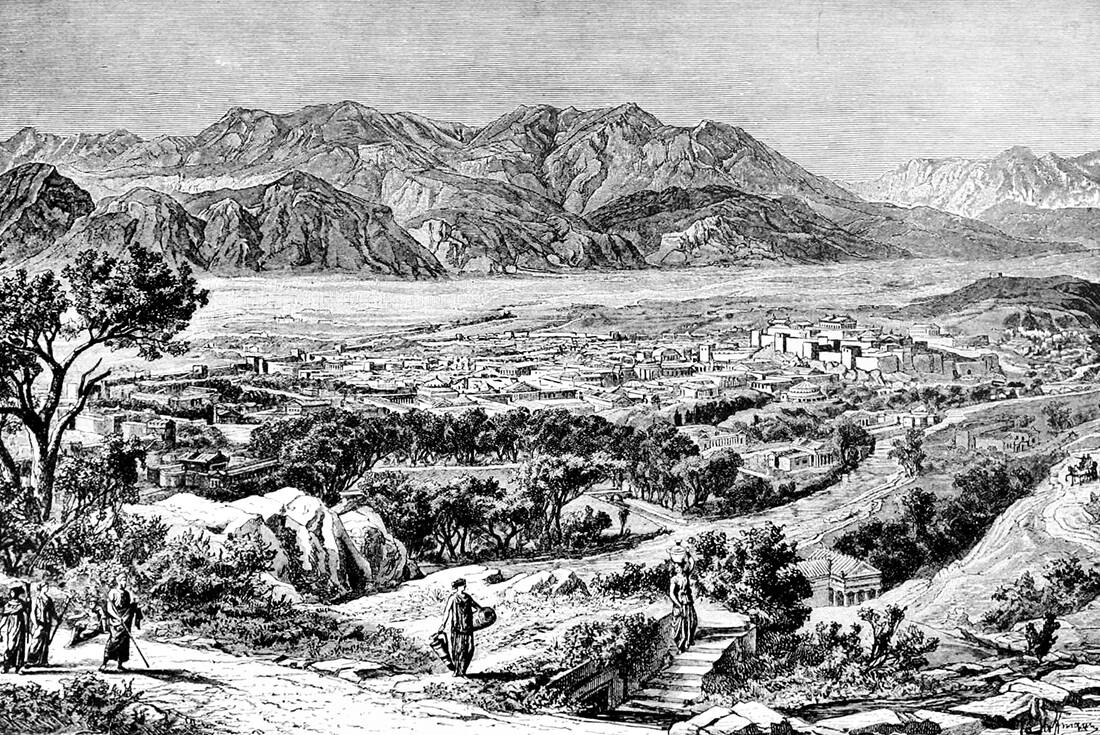
We also know that where there was a dowry, the woman owned half of it, where the Athenian daughter was entitled to only 1/6 of it. What we do not know is whether the state remained essentially the sole legal owner of all land.
The Spartan was the real boss of the house and that is exactly what society wanted her to be. The man spent his life in Spartan education and war and someone had to stay behind to take care of the household. But also to hold the reins of the helios. And this one had to be that strong. That is, the woman.
The Spartan woman spent most of her life without the man by her side. He, if he was lucky and still alive, would complete his military service by the age of 40. Until then the woman had a lot to think about and deal with and had to be very dynamic to manage her property, her household and her slaves.
Only from Sparta have we heard examples of women making large fortunes, precisely because they properly managed the land they owned. Aristotle once blames them (in "Politika") because they came to own "almost two-fifths of the country, ie the land ownership"!
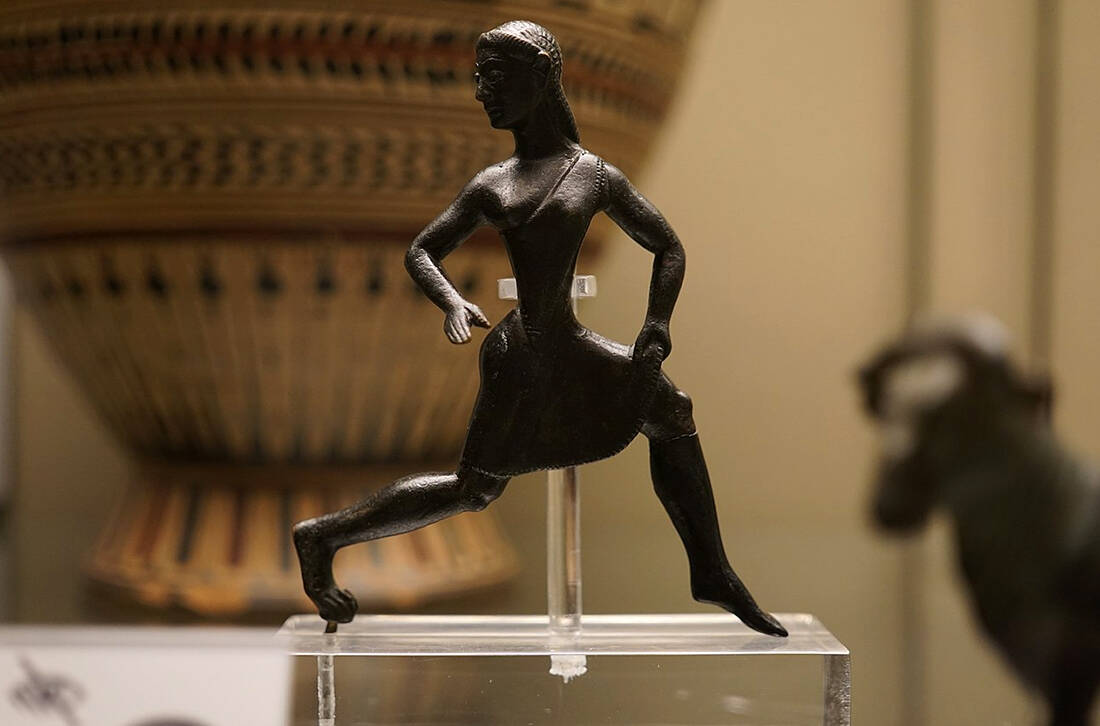
It was after the humiliating defeat of the Spartans at Lefkra in 371 BC, with the male population having shrunk considerably and the helots constantly revolting, that Spartan society would begin to treat women more cynically.
With the state weakened and those humiliated, the men were convinced that it was the capital role socially played by the woman who was to blame for all the sufferings of the city.
And Aristotle's critique is in line with the current views of the Spartans, who came to believe that not only women's property rights, but also their higher education itself was a problem.
"Then the freedom of women is detrimental to both the goal of the state and the prosperity of the city," he wrote. stagirite philosopher in his "Politics".
Women in Sparta, according to Aristotle, had so many rights that there was now a question of legislation on gender equality.
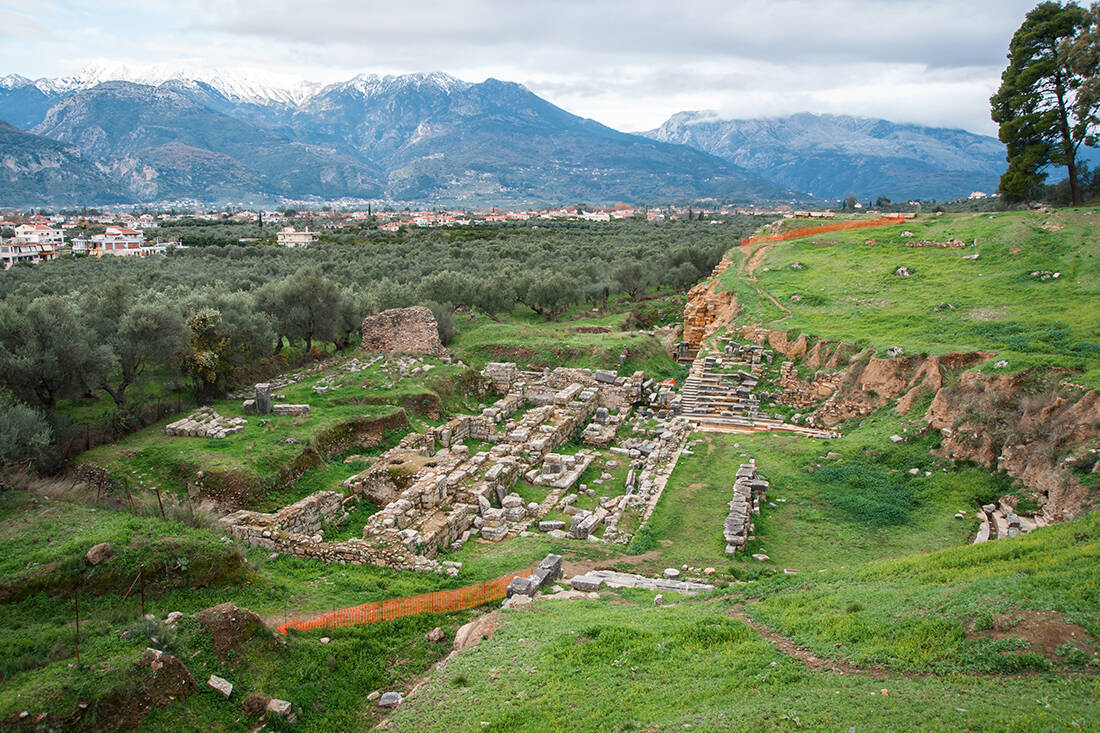
For the equation of man with the role of woman here! He even went so far as to claim that "while the women, they say, Lykourgos certainly tried to bring them into the laws, but when they objected, he was forced to retreat".
Her prestige, freedom and education were considered by Aristotle that they are solely responsible for the fall of Sparta and its civilization. Especially her incomparable independence was sitting on his neck, he considered that it was only a source of dangers and troubles.
And unfortunately some listened to him very carefully, as his spirit played a catalytic role in the Greek world.
Until the beginning of the period called Hellenistic times, the Spartan woman was forbidden to learn letters! We had to reach the years of Cleomenes III to revive women's right to education, but until then Sparta was a completely different society…
